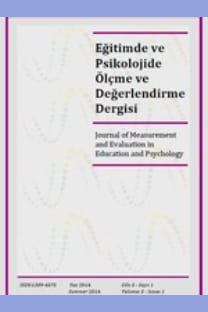Interview with Stephen G. SIRECI on Validity
___
- APA. (1952). Committee on Test Standards. Technical recommendations for psychological tests and diagnostic techniques: preliminary proposal. American Psychological Association Washington DC US. [American Psychologist, 7(8), 461-475. http://dx.doi.org/10.1037/h0056631 ]
- APA. (1954). Technical recommendations for psychological tests and diagnostic techniques. American Psychological Association Washington DC US. [Psychological bulletin, 51, 2, pt. 2, March 1954. Supplement.]
- APA. (1966). Standards for educational and psychological tests and manuals. American Psychological Association Washington DC US. [Educational and Psychological Measurement, 26, 3, 751-767 October 1, 1966 DOI: https://doi.org/10.1177/001316446602600328]
- APA, AERA, & NCME (1974). Standardsfor eductiond andpsychological tests and manuals. Washington, DC: American Psychological Association.
- AERA, APA & NCME. (1985). Standards for education and psychological testing. Washington, DC: American Psychological Association.
- AERA, APA, & NCME. (1999). Standards for educational and psychological testing. Washington, DC: American Educational Research Association.
- AERA, APA, & NCME. (2014). Standards for educational and psychological testing. Washington, DC: American Educational Research Association
- Campbell DT, Fiske DW. (1959). Convergent and discriminant validation by the multitrait multimethod matrix. Psychological. Bulletin. 56,2,81−105.
- Kane, M T. (1992). An argument-based approach to validity. Psychological Bulletin, 112, 3, 527-535. http://dx.doi.org/10.1037/0033-2909.112.3.527
- Kane, M. T. (2006). Validation. In R. L. Brennan (Ed.), Educational measurement (4th ed., pp. 17– 64). Westport: American Council on Education/Praeger.
- Kane, M. T. (2013). Validating the interpretations and uses of test scores. Journal of Educational Measurement, 50, 1–73.
- Messick, S. (1995). Validity of psychological assessment: Validation of inferences from persons' and performances as scientific inquiry into score meaning. American Psychologist, 50, 741-749
- Sireci, S.G. (2012). De-“Constructing” Test Validation. Center for Educational Assessment Research Report No. 814. Amherst, MA: Center for Educational Assessment, University of Massachusetts Amherst.
- ISSN: 1309-6575
- Yayın Aralığı: 4
- Başlangıç: 2010
- Yayıncı: Selahattin GELBAL
Puanlayıcılar Arası Güvenirlik Belirleme Tekniklerinin Karşılaştırılması
Özge BIKMAZ BİLGEN, Nuri DOĞAN
Duygusal Kıskançlık Ölçeği Üniversite Öğrencileri Formu: Geçerlik ve Güvenirlik Çalışmaları
An Investigation of Group Invariance in Test Equating According to Gender
Hatice İNAL, Çiğdem AKIN ARIKAN
Elif Bengi ÜNSAL ÖZBERK, Nizamettin KOÇ
Aylin ALBAYRAK SARI, Hülya KELECİOĞLU
A Comparison of IRT Vertical Scaling Methods in Determining the Increase in Science Achievement
Aylin ALBAYRAK SARI, Hülya KELECİOĞLU
Madde Tepki Kuramı’na Dayalı Madde-Uyum İndekslerinin I.Tip Hata ve Güç Oranlarının İncelenmesi
Seçil ÖMÜR SÜNBÜL, Semih AŞİRET
Yasemin Duygu ESEN, Filiz TEMEL, Ergül DEMİR
The Big Fish-Little Pond Effect on Affective Factors Based on PISA 2012 Mathematics Achievement
Exploring Variability Sources in Student Evaluation of Teaching via Many-Facet Rasch Model
